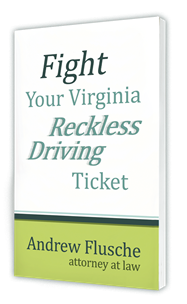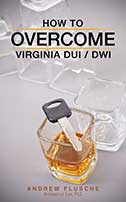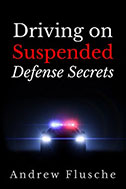Insurance Ramifications of a Hit and Run in Virginia
You were just trying to get home. A sudden jolt, the screech of tires—and then suddenly the other driver sped off, leaving you with a damaged car and even more uncertainty. What does this mean for your insurance? Your record? Your future?
Whether you were hit or are being accused, this guide will help you understand what happens next and how to protect yourself.
What Constitutes a Hit-and-Run in Virginia?
Under Virginia law, a hit and run occurs when a driver involved in an accident resulting in injury, death, or property damage fails to stop and provide their information to the other party or law enforcement.
Does Insurance Cover Hit and Runs in Virginia?
It depends on your policy, but yes, Virginia insurance law offers protection in many hit-and-run situations, including those involving parked cars or unknown drivers.
Uninsured Motorist (UM) Coverage
Virginia requires all auto insurers to offer UM coverage, which may apply if the at-fault driver cannot be identified. UM covers medical expenses for you and your passengers and vehicle repairs (property damage) after a hit and run, usually with a $200 deductible.
Collision Coverage
If you carry collision insurance, you may be able to file a hit-and-run insurance claim to repair your car, regardless of who was at fault. However, you’ll be responsible for your deductible, which may vary.
Not all accidents are treated the same way. Be sure to review your policy if you’re wondering, for instance, Does insurance cover hit-and-run parked car collisions? Many policies do, but some treat them differently from traditional collisions.
Will a Hit-and-Run Claim Raise My Insurance?
Possibly, even if you’re not at fault. A hit-and-run can result in:
- Premium increases. Insurers may raise your rate after a claim, even if you’re the victim. They may label you a “higher risk” driver.
- Policy non-renewal. Filing multiple claims, especially within a short period, can increase your risk of cancellation.
- SR-22 requirement. If you’re convicted of a hit-and-run, the DMV may require you to file an SR-22 certificate. That marks you as a high-risk driver, often resulting in higher premiums and limited insurance options.
An SR-22 is a certificate of financial responsibility necessary for certain driving violations that demonstrates your ability to cover potential liabilities. The Virginia hit-and-run deductible, premium impact, and future coverage depend on your claim history and insurer policy.
Civil Liability: Who Pays and What Happens?
Even if you avoid criminal charges, you could face a lawsuit from the other party involved in the accident. A hit-and-run incident may expose you to claims for:
- Medical bills,
- Property repair or replacement, and
- Pain and suffering,
Virginia law allows these civil claims even if the criminal case is resolved, meaning you could still owe thousands in damages, whether or not your insurer steps in.
Steps to Protect Yourself After a Hit-and-Run Incident
If you’re the victim, consider:
- Documenting the scene. Take photos and write down everything: location, time, damage, license plate if possible.
- Reporting it right away. Notify the police and file a claim with your insurer.
- Contacting an attorney. A lawyer can guide you through your hit-and-run insurance claim and help preserve your rights.
These steps will set you up for success in recovering compensation for your damages. If you’re accused of leaving the scene, on the other hand, we recommend:
- Talking to a defense attorney immediately. Hit-and-run charges can lead to jail time and license suspension, and
- Complying with legal obligations. If required, file an SR-22 and attend all hearings.
The right steps can help you avoid additional penalties or reduce the impact of a charge or claim.
Flusche & Fitzgerald Advocates for Your Rights
Flusche & Fitzgerald has helped thousands of clients in Virginia with traffic charges, insurance complications, and criminal allegations, such as hit-and-run. We offer:
- Years of experience. Our attorneys understand the local courts and DMV processes.
- Strategic defense. We work to reduce or dismiss charges, often before trial.
- Accessibility and professionalism. Clients praise our communication, compassion, and results.
Whether you need guidance after a crash or are defending against allegations, we’re here to help protect your future. Reach out to discuss your situation and take the first step toward protecting your record, finances, and peace of mind.
FAQs
Does Insurance Cover a Hit-and-Run In Virginia?
Yes. Uninsured Motorist (UM) coverage may apply if the at-fault driver is unknown. If you have collision coverage, that may also cover the damage, subject to your deductible.
What Are the Consequences of a Hit-and-Run in Virginia?
Penalties vary based on damage and injury, with Virginia law distinguishing between misdemeanor and felony offenses:
- Class 5 felony. If the accident involves injury, death, or more than $1,000 in property damage, the driver may face up to 10 years in prison, fines up to $2,500, and license revocation.
- Class 1 misdemeanor. For damage of $1,000 or less with no injuries, penalties include up to 12 months in jail and similar fines.
Whether or not you’re at fault in the accident, fleeing the scene can escalate into a criminal case.
Whose Insurance Pays for a Hit-and-Run?
If the other driver is identified, their liability policy pays. Depending on your policy, your UM or collision coverage may apply if they flee or can’t be found.
How Much Does Car Insurance Go Up for a Hit-and-Run Claim?
It varies, but rates often increase, even for victims. If you’re convicted of leaving the scene, expect a significant hike and possibly restricted insurance options.
Resources




